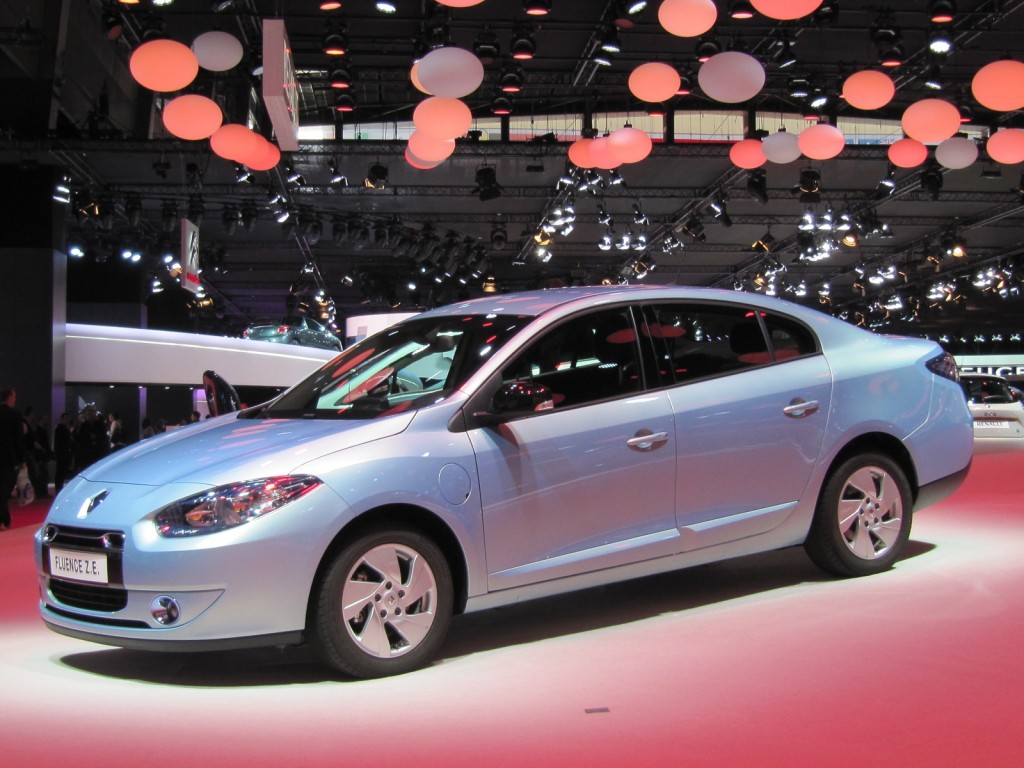With relatively few electric vehicles on the market, drawing direct comparisons with regular gasoline and diesel vehicles is surprisingly difficult--not many vehicles are sold with all three drivetrains. The Ford Focus is one, and Renault's Fluence sedan is another.
Now, reports Autoblog Green, the French automaker has revealed findings from a study to determine which is greener over the vehicle's lifecycle.
Unsurprisingly, the electric Fluence Z.E. comes out on top, ahead of its gasoline and diesel counterparts--though not without a few caveats.
Bare numbers
The findings stem from an internal Renault study published in October 2011. It's based on series production variants of each Fluence model--gasoline, diesel and electric--and based on a vehicle lifecycle of 93,205 miles, or a nice round 150,000 kilometers.
Both the 1.5-liter diesel Fluence and 1.6 gasoline model are relatively efficient for their type. Although measured against the optimistic European drive cycle, the diesel's 4.4 liters/100 km economy translates to 53.5 mpg, with CO2 emissions of only 115 g/km.
A little number-juggling converts the Fluence Z.E.'s efficiency figure of 0.14 kWh/km into 22.5 kWh/100 miles--less than that of any electric car sold in the U.S. (a Leaf uses 29 kWh/100 mi) but once again, this figure is based on the European drive cycle, so isn't comparable to the EPA's ratings.
Quantifying impact
The Fluence's lifecycle assessment (LCA) was measured in six ways: Global warming 100-year potential, acidification potential, photochemical ozone creation potential, eutrophication potential, abiotic resource depletion potential and primary energy demand. Each of these was then measured over the four periods of a car's life--production, well-to-tank, use, and recycling.
That all sounds rather complicated (and you can read how each is measured at Green Car Congress) but the upshot is that over all but one of the six LCAs, the Fluence Z.E. was cleaner than its combustion cousins, vastly so on a couple, including global warming potential. Here, it's only around 60 percent that of the diesel, and less than half that of the gasoline model.
Where the electric car didn't score so highly was in the acidification potential category. This was mainly down to the Fluence Z.E.'s production stage, which results in higher oxides of nitrogen and sulfur dioxides.
Given that each car in the study is a Renault Fluence, the discrepancy is down to production of the car's lithium-ion battery pack, rather than other differences between the models.
2012 Renault Fluence ZE electric car (European model) at 2012 Paris Auto Show
While many of the numbers are unsurprising and back up those of similar studies, Renault's findings also illustrate how important a clean grid is to an electric car's overall cleanliness.
This is illustrated in Renault's comparison between each of the above factors in France, to those of a European average and to the coal and gas-heavy Great Britain (GB) market.
France's largely nuclear-powered grid has just 70 percent of the global warming potential of Europe as a whole, while GB is around 140 percent of Europe. With production impact pegged level across the board, the vast majority of that difference is down to the well-to-tank impact in each country.
An independent review of Renault's findings revealed them to be fairly accurate.
While some factors were missing from Renault's investigation into electric vehicles, the review also pointed out that real-world emissions from internal combustion vehicles are often significantly higher than Renault's +15% corrections--something to swing the charts heavily in favor of the electric vehicles.
Ultimately, today's electric cars are already greener than their combustion equivalents in most key areas, even on sub-optimal grids. But run them in a country like France--or run them from your own renewable sources--and there's little to touch them.
_______________________________________________________
Follow GreenCarReports on Facebook, Twitter, Instagram and Google+













